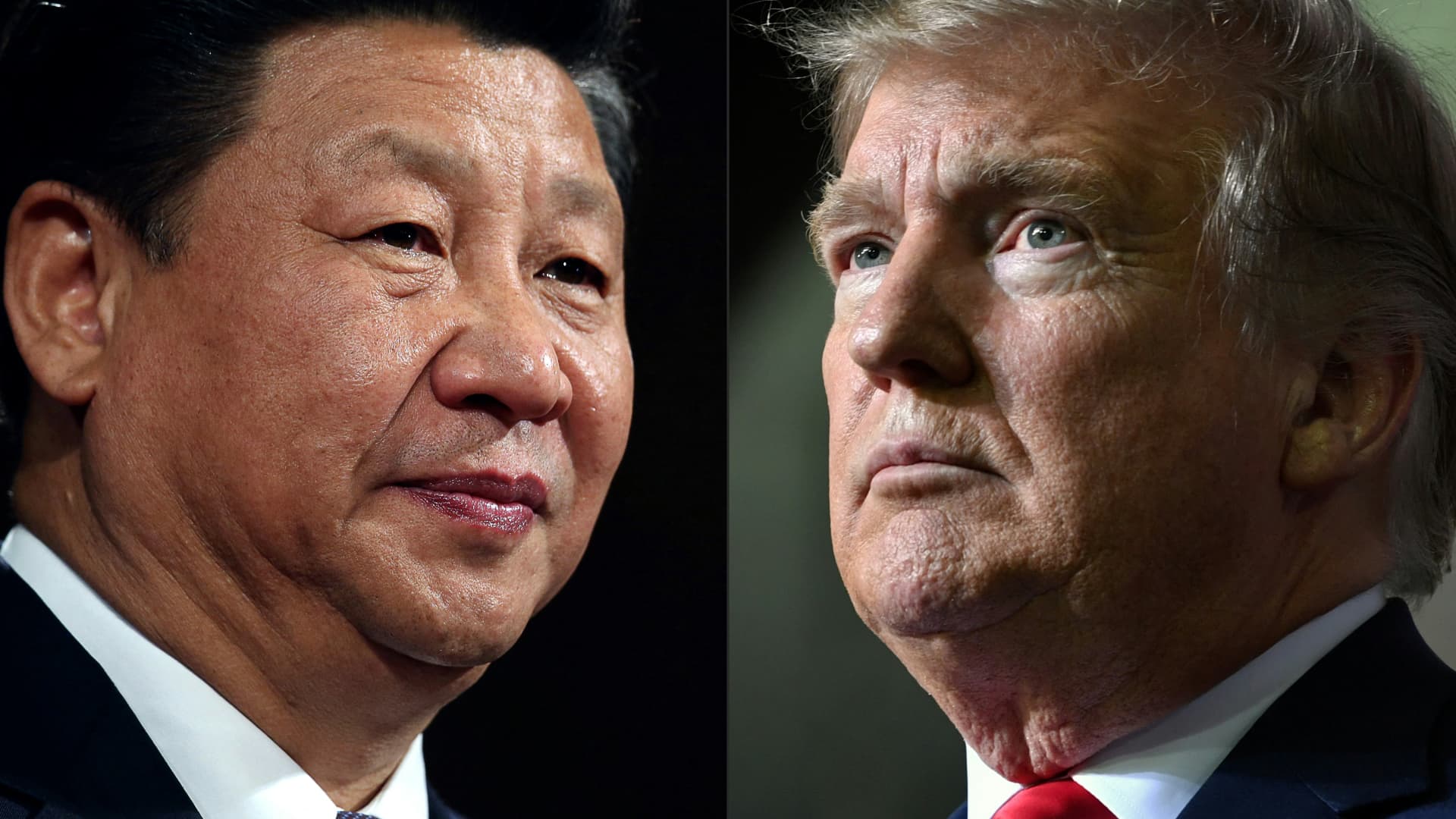Rachel Reeves, UK Finance Minister, speaking on CNBC’s Squawk Box outside the World Economic Forum in Davos, Switzerland on Jan. 22, 2025.
Gerry Miller | CNBC
The U.K. is “not part of the problem” when it comes to “persistent” trade deficits that President Donald Trump wants to tackle, the country’s finance minister told CNBC Wednesday.
“I do understand that President [Donald] Trump is concerned about countries that are running large and persistent surpluses on the trade balance with the U.S. That’s not the case for the U.K.,” the U.K.’s Chancellor Rachel Reeves told CNBC’s Andrew Ross Sorkin.
“We are not part of the problem here. So we, the U.K., increased trade with President Trump last time he was in office,” she said, speaking to CNBC on the sidelines of the World Economic Forum in Davos, Switzerland.
President Trump is roundly irritated by the U.S.’ trade deficits with many of its partners, but trade with the U.K. has generally been more balanced, see-sawing between surplus and deficit in recent years.
The latest U.K. trade data shows that, in the second quarter of 2024, the U.K. had a trade surplus of £4.5 billion ($5.5 billion) with the U.S. in goods. In the second quarter of 2023, however, the U.K. had a trade in goods deficit with the U.S. of £2.3 billion.
As such, while China, Mexico, Canada and the EU are seen as the top targets for Trump’s trade tariffs, the U.K. might escape relatively unscathed, economists believe. Reeves expressed optimism over the outlook for U.K.-U.S. commerce.
“There is absolutely no reason why our two great nations, with such a strong and special relationship, can’t increase those flows of trade once again,” Reeves commented.
The U.K.’s finance minister is in Davos this week, trying to attract global investment into the British economy.
To achieve economic growth, she said, “we need more investment into the U.K. And so my message to U.S. investors and global investors too is: Britain is open for business, we want your investment.”
The trip comes after Reeves has come under sustained pressure since unveiling the Treasury’s spending and taxation plans last fall.
The package of measures presented in the ‘Autumn Budget’ centered on increasing the tax burden on British businesses and has drawn widespread criticism from industry leaders, who said the move would stifle investment, jobs and growth.
Recent data releases, including lower-than-expected growth data for November and higher-than-expected government borrowing costs in December, have also contributed to ongoing discomfort in the Treasury.
Bond turmoil
The U.K. found itself in more hot water at the start of the year, as the interest rate that investors demanded to hold U.K. bonds — known as gilts — rose sharply, reflecting market jitters over the U.K’s economic prospects.
Reeves has held fast to her fiscal plans, saying that growing the U.K. economy is her top priority.
Commenting on recent gilt market turmoil, the minister said on Wednesday the country was “not immune to what happens in global markets.”
“What I would say, though, is that in the Budget that I set out in October, I put out the fiscal rules that this government will operate within. And those fiscal rules, to pay for day-to-day spending through tax receipts, and to get our debt down as a share of our GDP — those fiscal rules are the bedrock of economic and fiscal stability. They’re non-negotiable, and we will continue to meet them,” she said.
Donald Trump’s election last November represented another headache for the center-left Labour government, with a number of ministers, such as Foreign Minister David Lammy, making less-than-flattering comments about Trump in the past.
Unnatural bedfellows when it comes to political ideology, Prime Minister Keir Starmer, Reeves and the British establishment are looking to build good relations with the White House, particularly amid the potential threat of universal trade tariffs.
The Labour government has been targeted by Trump’s close ally Elon Musk in recent months, with the tech billionaire criticizing Prime Minister Starmer and Britain’s past investigations into child sexual exploitation.
Asked for her opinion on Musk’s interventions, Reeves said Musk was “entitled to his opinion, but he’s not one of the people who votes in the U.K. general election.”
Follow CNBC International on Twitter and Facebook.
— CNBC’s Ruxandra Iordache contributed reporting to this story










